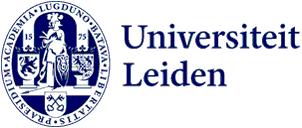
How “giving voice” may lead to silence
Do we break the silences in our research participants’ stories? When is it ethical to write and not write about what remains unspoken in the social worlds we study? And when we encounter silences, how do we document them? These were just some of the many questions discussed during the vivid and inspiring masterclass offered by Dr. Evropi Chatzipanagiotidou (Queen’s University Belfast) on 30 November 2022, to 10 PhD candidates and postdocs in the field of anthropology and sociology at Leiden University.
“We often collect so much material, so many stories that people tell us, that we sometimes forget to attend to the silences,” Dr. Panagiotidou said as she introduced the Masterclass. All participants had prepared a short reflection in advance, revealing a wealth of engagements with the topic as well as many questions on methodology, ethics, documentation, and representation. In the exercise that followed, participants engaged in a writing activity that brought them close to a fieldwork conversation in which silence played a role. Reflecting on this afterward, one participant mused that sometimes not asking a sensitive question may be the ethical thing to do. Yet at the same time, one runs the risk of being too careful, preventing stories from being told.
Such dilemmas were also a main theme in the talk Dr. Chatzipanagiotidou delivered the next day for a fully packed room with engaged audience in the Faculty of Social and Behavioral Sciences. During this talk, she spoke about her research with Syrian artists in Istanbul, showing how well-intended efforts to give artists a “voice” may lead to silencing the creativity of their work. How are academics themselves complicit in such processes of representation and silencing? What may be our responsibility to decide to not document certain stories? Her evocative questions sparked a generative discussion, showing that such questions of ethics, silences and silencing deserve continuous attention in our academic practice.
This masterclass and lecture have been organized by the Institute of Cultural Anthropology and Development Sociology, and its Diversity Research Cluster, and have received support from the Research Programme Social Citizenship and Migration.
